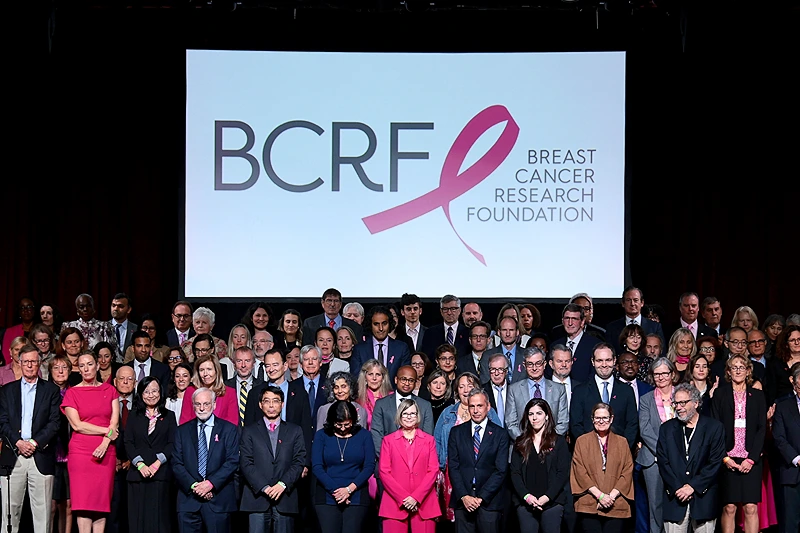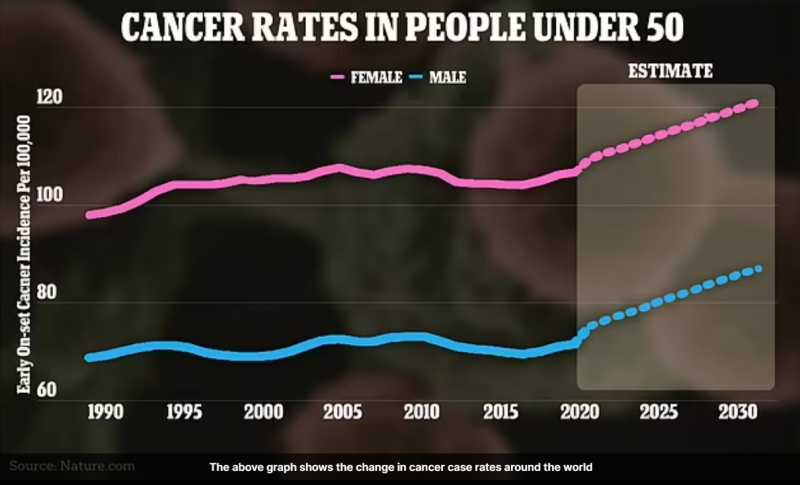
OAN’s Brooke Mallory
2:05 PM – Tuesday, April 30, 2024
A leading disease prevention organization in the United States has released new official guidelines that lower the recommended age for women to start routine breast cancer screening from 50 to 40.
Amid an increase in the disease’s cases among women under 50, the U.S. Preventive Services Task Force (USPSTF) completed the draft guideline from the previous year on Tuesday.
Physicians all around the U.S. almost invariably accept the group’s recommendations as its best practices.
For example, last year, the minimum age required for a colonoscopy screening was decreased from 50 to 45 by the same group.
“The ruling reverses longstanding guidance recommending women start regular screening, done through a specialist x-ray called a mammogram, at age 50,” the Daily Mail reported.
During the operation, the breasts are flattened between metal plates so that photographs from above and the sides can be taken.
The vice president of the USPSTF, Dr. John Wong, mentioned a three percent annual increase in the number of incidences of breast cancer among women under 50, according to recent data.
Actress Olivia Munn is one such example. At 43 years old, she received a breast cancer diagnosis after a previous test failed to detect the tumor.
“There is clear evidence that starting screening every other year at age 40 provides sufficient benefit that we should recommend it for all women in this country to help them live longer and have a better quality of life,” said Dr. Wong, a primary care physician at Tufts Medical Center.

Although many women choose to have annual mammograms, the government still recommends screening for breast cancer every two years for those at average risk.
The task group stated that additional tests, such as MRIs or ultrasounds, are not recommended for women with dense breast tissue due to “insufficient evidence.”
According to experts, women with thick breasts may have tumors that are harder to detect, potentially missing them on initial mammograms.
All mammography centers will have to notify women if they have thick breast tissue starting in September.
According to the National Cancer Institute (NCI), 43,700 people will die and over 300,000 new cases will be diagnosed this year.
A lump that feels different from surrounding tissue, a change in the breast’s shape or appearance, an inverted nipple, pigmented skin peeling or flaking around the nipple, and redness or pitting around the breast’s skin are all considered indicators of breast cancer, according to the Mayo Clinic.
Researchers also discovered that since the COVID-19 pandemic, fewer women are being checked for breast cancer, according to a study that was published in JAMA Network Open last year.
After examining 1.6 million records of breast cancer screenings, they discovered that in the first year of the pandemic, screenings decreased by 14%.
However, the panel’s suggestions are not universally accepted by other experts.
A representative for AHIP, which advocates on behalf of health insurance companies, Dr. Robert Traynham, stated that the panel’s decision to not recommend additional scans would have unfavorable effects on patients.
“AHIP is an American political advocacy and trade association of health insurance companies that offer coverage through the employer-provided, Medicare Advantage, Medicaid managed care, and individual markets,” their website states.
“What that means for coverage is that there is no mandate to cover these specific screenings for women with dense breasts at zero-dollar cost-sharing,” Traynham said.
In order to calculate your own breast cancer risk, you can input your answers at bcrisktool.cancer.gov
Stay informed! Receive breaking news blasts directly to your inbox for free. Subscribe here. https://www.oann.com/alerts

